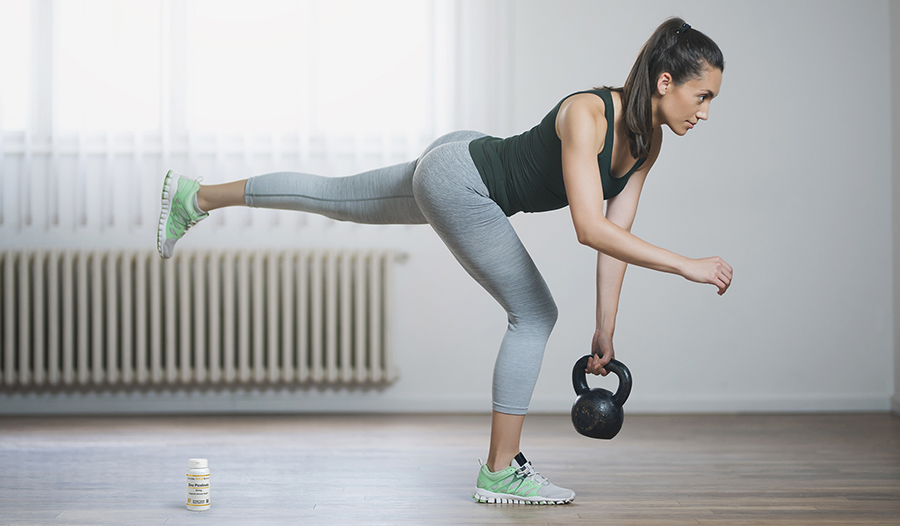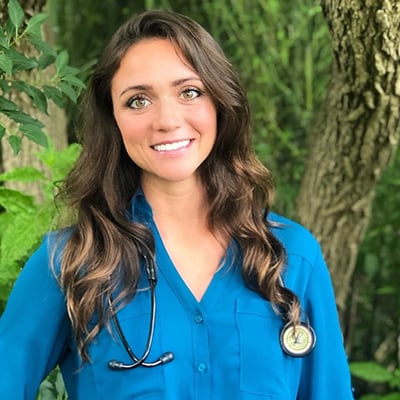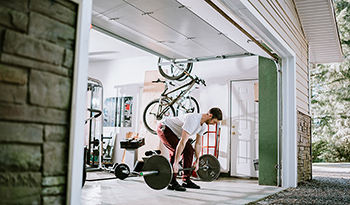Health Tips From a Naturopathic Doctor: Minerals + Weight Training
DISCLAIMER:This blog does not intend to provide diagnosis...
- In this article:
- Minerals Matter for Digestion, Mood, Metabolism, and Bone Health
- Why I Weight Train Almost Every Day as a Naturopathic Doctor
- Simple and Effective: Minerals and Weight Training are The Ultimate Duo

Life gets busy and sometimes things get in the way—of working out, of cooking healthy meals, of picking up exactly the right foods at the grocery store. Whether you’ve set yourself a particular health and fitness goal or you’re simply trying to make small adjustments to your daily routine, it’s helpful to rely on one or two routines that are easy to accomplish and yield tangible benefits.
As a naturopathic doctor with my own practice and a family to care for, life sometimes interrupts my best-laid plans to prepare perfectly balanced meals or attend a daily fitness class at my gym. To keep me in a healthy physical and mental place no matter what’s going on around me, I rely on two essential components of my health plan: trace minerals and weight training.
Minerals Matter for Digestion, Mood, Metabolism, and Bone Health
Trace minerals are vital for human health. Each one has multiple jobs within the body, ranging from supporting cellular energy creation to building healthy teeth and creating neurotransmitters. Calcium, for example, not only helps muscles contract by creating electrical potential but also makes up most of our bone matrix. These are two essential jobs, both done by a single mineral.
Some Soils are Mineral Deficient
Depending on the geographic area you live in, your soils may not contain enough of a given mineral for you to meet your needs through food alone. In fact, most governments keep an agricultural map of areas in their nations that are prone to deficiencies in minerals like cobalt, iron, copper, and more. These soil mineral deficiencies not only affect how crops are grown but also the health of the animals and humans who eat them.
If you live in the Northeast, Pacific Northwest, or the Southeastern United States, for example, your soils are likely to be selenium deficient. This, in turn, can impact your thyroid function!
It’s Hard to Get Minerals Just from Food Sources
Even if our soils were rich in minerals, we’d still have to eat a wide variety of foods to get the daily requirement for each of the roughly 80 minerals that matter for human health. For example, oysters are a top food source of zinc—but I, like many of my clients, find it hard to eat oysters daily.
To get the 20 different trace minerals I focus on for health, I’d have to eat 20 different foods per day, which often isn’t feasible on days when I’m on the road or have a busy schedule away from my healthiest food options. My clients tell me the same thing!
Trace Mineral Drops Make Getting Minerals Easy
A quick, easy, and high-impact way to ensure you are meeting your mineral needs is to use trace mineral drops in your water daily. Trace mineral drops provide almost all of my percent daily value of magnesium, which may help calm and prevent muscle cramps (important for someone who lifts as often as I do!), and chloride, which helps regulate the body’s fluids, passes messages between the brain and muscles, and may promote healthy digestion.
I get all of that just from a few drops in my water bottle every time I fill it up! Even better, I don’t have to hyper-focus on foods on days when I’m already stressed. I just plop some mineral drops in my water, sip, and move on knowing that I’m still keeping myself healthy and hydrated.
Trace Minerals Come in Many Forms
While liquid mineral drops work well for me, they don’t work for everyone. Liquid mineral drops can aggravate chronic diarrhea since they help promote gastric motility. And if you travel from home to work or school, you’ll need to keep trace mineral drops in all the places you refill your water bottle.
If you prefer gummies or chewables, you can take minerals like zinc in a chewable form with a meal. My little one loves gummy zinc, so we pair that with her dinner to keep her healthy, especially during the holiday cold and flu season.
Always consult a qualified healthcare practitioner before adding minerals to your routine since they are powerful and can have powerful effects on your health, both for good and for bad. Your dietitian, naturopathic doctor, or functional medicine doctor are the best equipped to advise you about nutrition since they have the most training in this modality—but your primary care physician and other members of your medical team can help you too.
Collagen is a Great Source of Minerals and Protein
Collagen powder is another easy way to add minerals and protein to the food and drinks I’m already consuming. I use a powdered collagen supplement and often add it to my morning oatmeal or coffee—it dissolves right in with virtually no added taste.
Since I’m constantly on the go, it’s essential that I give my muscles, joints, and tendons everything they need to stay strong and flexible, and that’s exactly how collagen works. It also contains proteins, which are necessary for building muscle. So collagen is also a natural complement to my other daily routine—weight training.
Why I Weight Train Almost Every Day as a Naturopathic Doctor
I love a good cardio class as much as anyone else, but my go-to daily exercise when I’m crunched for time is actually weightlifting. Weight training provides multiple benefits in the same session, like building bone, increasing muscle mass and basal metabolic rate (BMR), boosting mood and improving balance.
For women, in particular, building bone before menopause is a great strategy for preventing osteoporosis. I want to keep my bones healthy as I age so I can stay active and fit even into my late 120s!
Lifting Weights Helps Make Connections and Promotes Mental Health
Weightlifting is good for the mind too. For example, neuromuscular training, like plyometrics, helps train the pathways and messengers between the mind and the body. And for me, weightlifting requires a deep level of concentration—often, it is the only time of the day when I really “drop-in” to my body.
This kind of focus melts away the worries of the day and my nervous system gets an important rest. In turn, I find I’m more patient, creative, and productive when I’m once again ready to pick up with the stressors of work and family. I always leave the gym feeling both physically and mentally stronger.
When I want to, though, the gym can also be a great place to build community. I’ve made friends at the gym, and we connect through our shared interests and dedication to taking care of ourselves. Weightlifting can also be scaffolded to any level, so I can always bring along a family member or old friend who can work next to me and we get to spend some quality time together.
Even my teenager loves hitting the gym and showing off how strong she’s getting, whether it’s for a yoga class or weight training session! Additionally, in a culture that often focuses so much on appearance, changing the language we use around our bodies to focus on strength and ability is good medicine, no matter what age we are.
Simple and Effective: Minerals and Weight Training are The Ultimate Duo
In conclusion, my daily supplements and regular lifting regimen are the routines I rely on for daily health and wellness because they’re both easy to accomplish and yield the greatest benefits. The demands of life don’t always allow for perfectly designed meals or working out with a personal trainer—sometimes we just have to prioritize other aspects of our busy lives. The trick is finding just a few simple, high-yield activities that work for you and turning them into daily, healthy habits.
References:
- “Office of Dietary Supplements - Zinc.” National Institutes of Health. ods.od.nih.gov/factsheets/Zinc-HealthProfessional/. Accessed 8 December 2021.
- “Office of Dietary Supplements - Exercise and Athletic Performance: Consumer.” National Institutes of Health. https://ods.od.nih.gov/factsheets/ExerciseAndAthleticPerformance-Consumer/ Accessed 12 December 2021.
- “Female Athlete Program.” Boston Children’s Hospital. https://www.childrenshospital.org/centers-and-services/programs/f-_-n/female-athlete-program# Accessed 12 December 2021.
- “Mineral Nutrition Considerations | Agricultural Research.” Luresext.edu, 2020, www.luresext.edu/?q=content/mineral-nutrition-considerations. Accessed 13 Dec. 2021.
- “Sports Medicine Division.” Boston Children’s Hospital. https://www.childrenshospital.org/centers-and-services/departments/sports-medicine Accessed 12 December 2021.

 By Dr. Kate Henry, N.D.
By Dr. Kate Henry, N.D.


